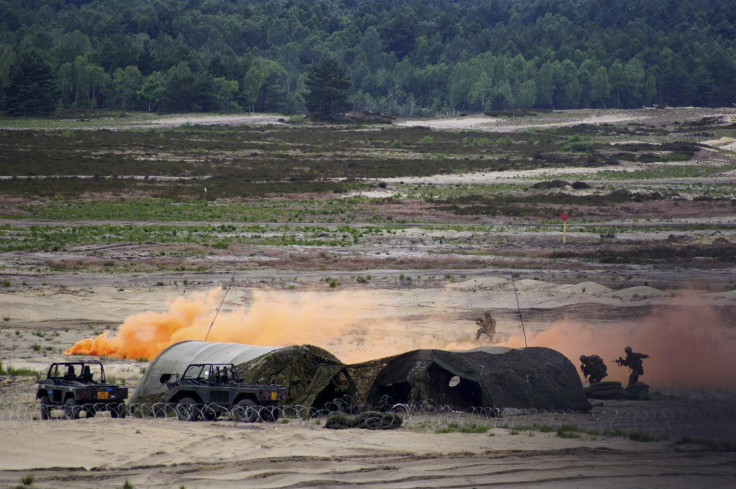Amid Russia Hostility, NATO Holds Largest Military Exercise In Europe Since End Of Cold War

As many as 5,000 troops from 11 countries will take part in the largest NATO airborne drill since the breakup of the Soviet Union in 1991. The drill is expected to run until mid-September and will take place in Bulgaria, Germany, Italy and Romania, according to a statement Tuesday from the U.S. Army in Grafenwohr, Germany.
"Swift Response 15 is the largest allied airborne training event on the continent since the end of the Cold War," the statement read. The U.S. says the training is designed to help allied "high-readiness forces" act as one and "demonstrate the alliance's capacity to rapidly deploy and operate in support of maintaining a strong and secure Europe."
The highlight of the airborne drills will take place at the end of August, when NATO warplanes will drop more than 1,000 paratroopers and equipment over the Hohenfels training area in Germany. Soldiers from Bulgaria, France, Germany, Greece, Italy, the Netherlands, Poland, Portugal, Spain, Britain and the United States will take part.
While the official announcement made no mention of the eastern Ukraine war, where Russian-backed rebels have been fighting Ukrainian troops since last April, the exercise does come during a period of intense strain between Moscow and NATO. Since the annexation of Crimea in March 2014 and the ongoing war in the contested region of Donbass that began a month later, Russia has been sending its aircraft and ships into Europe's international airspace and waters. Fighting in the war-torn region has escalated over the last 10 days, continuing to undermine the Minsk II ceasefire that was signed in February this year.
Despite Ukraine not being part of the 28-country alliance, fighting has created a standoff between Russia and NATO. The Brussels-based alliance accuses Moscow of providing weapons and soldiers to rebels fighting in eastern Ukraine, which Russia denies.
NATO was forced to deny claims last week that its high number of training exercises was pushing the West closer to a war with Russia.
© Copyright IBTimes 2024. All rights reserved.












